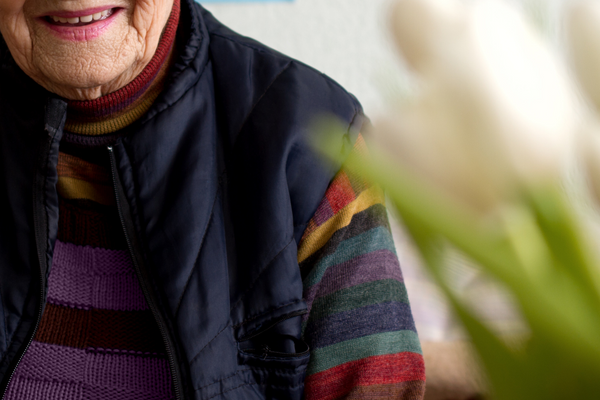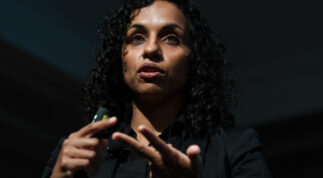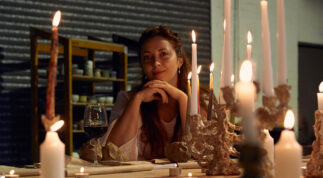Rosalind, a woman in her mid 80s, wrote to the Victorian Women’s Trust recently. She had just finished reading our 2019 publication About Bloody Time: the Menstrual Revolution We Have to Have and said that she finally felt bold enough to share her own story, and the attitudes towards menstruation she had observed over the decades. In particular, Rosalind wanted to break down the silence and stigma surrounding menopause.
The timing of Rosalind’s letter was uncanny, as the documentary film, Giving Voice to Menopause (produced by She Listens) was about to be released. The film’s central message is that menopause is normal, biological experience and it deserves a place in our cultural conversations. Funded by the Wood Foundation and provided with in-kind support from VWT, Giving Voice to Menopause was created to ensure diverse stories of women’s menopausal experience to be shared and heard, so that we can expand our understanding of this important stage of life.
About Bloody Time and Giving Voice to Menopause are essential tools in breaking down the cultural taboos around menstruation and menopause, encouraging greater respect for this common biological experience, and each other’s stories.
Here’s Rosalind’s story (shared with permission):
“I was born in 1937. I have given About Bloody Time to both my daughters-in-law, to offer as much published information as possible as they approach their menopausal years. The book also resurrected my own family memories of this hormone-related upheaval in women’s lives.
My periods arrived relatively late (I must have been about 14) and by the time I entered the university college they were heavy, accompanied by cramps. Bleeding for seven days was normal for me. Being introduced to tampons by a fellow student changed my life. The alternative was a sanitary belt — elastic round your waist, with metal or plastic clips front and back where you threaded the fabric ends of the sanitary pads.
My remarkable Mum had a difficult menopause in the early 1950s, although as an uninformed teenager I didn’t understand her behaviour. After one difficult day at home, with Mum shuddering and sobbing, I called our local GP. Mum was driven away to Larundel Mental Asylum, where the recommended shock therapy (ECT) was used. She was then transferred to the gentler Royal Park Psychiatric Hospital for rehab, and returned home quiet and somewhat stunned. Not that I understood why.
The outcome can best be described by Dr J——’s receptionist, who had worked in his rooms for many years. “I see new patients walk in, white- faced and often angry. They come out smiling from the consultation.” Lovely Dr J—— did that for me, initially by being a warm and thoughtful listener. His prescription was not HRT, nor tranquillisers (which he said didn’t work anyway). He gave me a list of supplements, available from the “health food shops”, most of which he had tested on himself.
The depression no longer hit, and the migraine was reduced to two days, with an old-style caffeine/ergotamine capsule to block it once it started. Some years later my husband reported meeting Dr Jim at a medical conference, and thanking him “for making our lives normal”. With kind Dr J—— on hand, once my menopause arrived I had no difficulty sailing through it. No fear, no ECT, no physical or mental upheaval, just gradual disappearance of the bleeding.
My recommendation for all women today, still struggling to cope with Dr Dalton’s “unnecessary suffering”, is to follow her advice — keep a chart for evidence, and consult an endocrinologist at a women’s hospital.”



